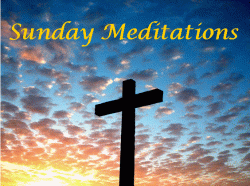Christ is Risen! Happy Easter everyone. I encourage us all to spend some time contemplating Christ’s death and resurrection today.
The following excerpt is from Coffee with Calvin by Donald K. McKim (Westminster John Knox Press, 2013), a book of devotional thoughts excerpted from Calvin’s Institutes.
Christ’s Death and Resurrection
Therefore, we divide the substance of our salvation between Christ’s death and resurrection as follows: through the death, sin was wiped out and death extinguished; through his resurrection righteousness was restored and life raised up, so that — thanks to his resurrection — his death manifested its power and efficacy in us. (Institutes 2.16.13)
The death and resurrection of Jesus Christ go together. Jesus’ resurrection follows his death in the Gospels. Jesus’ death is the necessary prelude to his resurrection. Theologically, each is important for salvation to occur.
Calvin indicates ways the death and resurrection of Christ are key for believers. Through Jesus’ death, sin is obliterated and the power of death is broken. Somehow, through the death of Jesus, God forgives our sin and wipes away its power to hold us in its clutches. The ultimate result of sin — death — is snuffed out by the death of Christ. Jesus underwent death and through his death the power of death over us is taken away. This is why the cross is so central in Christianity. In the cross of Christ we find that sin’s power is wiped out and death’s power is extinguished.
The death of Christ has these effects because of Christ’s resurrection. God raised Jesus from the dead so that Christ’s death can have its sin-forgiving, death-defeating power. The resurrection established God’s power in Christ over the powers of sin and evil, restoring righteousness for the world and raising Christ to new life so that from now on, new life for believers can be real. This is the celebration of Easter and all days when the resurrection of Christ is remembered. “Thanks to his resurrection,” says Calvin, Christ’s death works its power in us. Sin is forgiven; death is conquered. This is the glad news of salvaion. (Kindle loc. 684-693)
You can pick up a copy of Coffee with Calvin at the following online retailers: Christianbook.com and Amazon.com.
Disclaimer: This book was provided by the Westminster John Knox Press. I was under no obligation to offer a favorable review.
 I had the privilege to fill in for our pastor this past Sunday, and deliver the Sunday sermon. It’s available now for free download or to listen online.
I had the privilege to fill in for our pastor this past Sunday, and deliver the Sunday sermon. It’s available now for free download or to listen online. In the last several months, I’ve been working my way through Frank Thielman’s
In the last several months, I’ve been working my way through Frank Thielman’s 